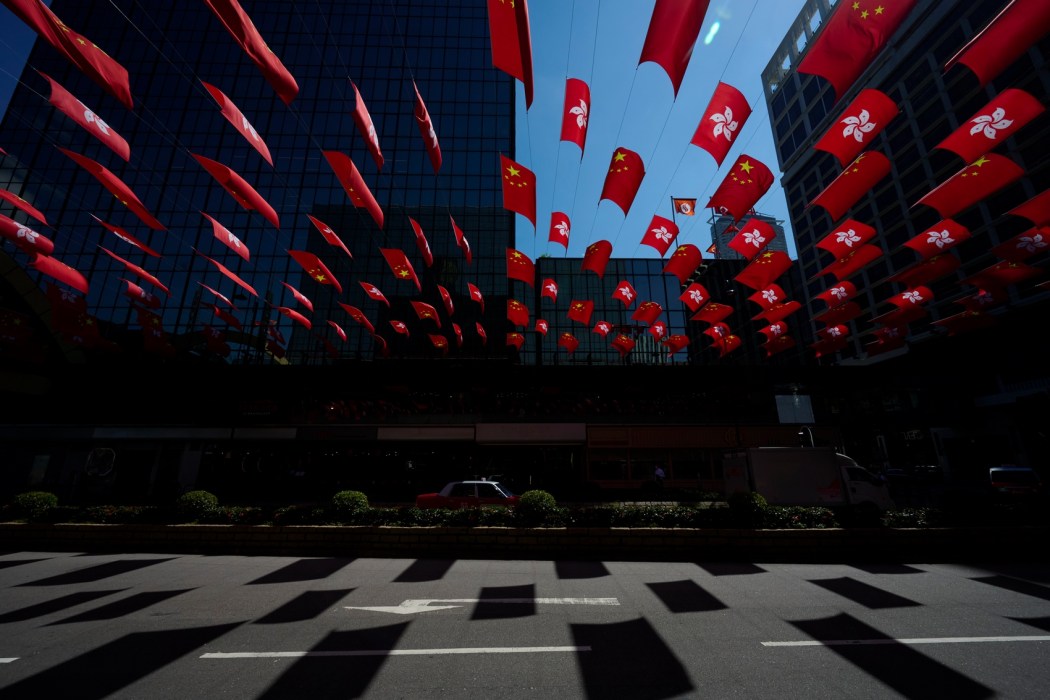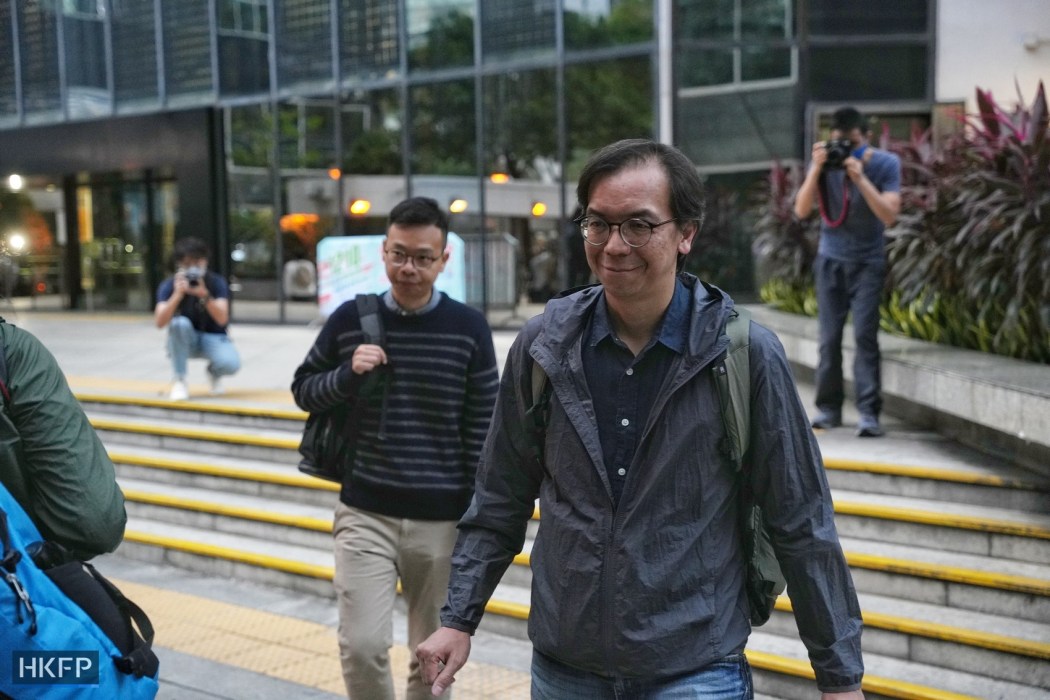Pro-democracy radio DJ Tam Tak-chi has lost a bid to appeal his conviction and 40-month sentence under the city’s colonial-era sedition law, in a case that promises to have far-reaching ramifications for Hong Kong’s legal landscape.
Better known as “Fast Beat,” Tam launched his appeal bid last July, after being found guilty of 11 charges, including seven counts of “uttering seditious words,” in March 2022. He was sentenced the following month.

Tam stood accused of chanting the controversial slogan “liberate Hong Kong, revolution of our times,” a phrase ruled as capable of inciting others to commit secession in the city’s first national security trial. He was also accused of insulting the police by describing them as “damned black cops.”
The Court of Appeal on Thursday ruled that Tam did not need to have an intention to incite violence to be found guilty of sedition, and that sedition offences must be interpreted with respect to the “specific legal and social landscape” to which they pertain.
During the appeal hearing last July, Tam’s barrister Philip Dykes argued that Hong Kong’s sedition law fell short of international standards as it failed to include a defendant’s intent to incite violence as an essential element of the offence.

Dykes argued at Tam’s trial – the city’s first for sedition since its return from British to Chinese rule in 1997 – that the prosecution had failed to prove that Tam intended to incite violence. As a result, the sedition law constituted a disproportionate restriction of freedom of speech and expression.
But the prosecution argued that sedition charges were statutory offences and thus it was not necessary to prove an intention to incite violence.
Thursday’s ruling breaks away from a decision by the UK’s Privy Council – a leading common law authority – identifying “an intention to incite violence or disorder” as an essential element of the sedition offence.
The judges said it “has reservations” as to whether that decision was applicable to Hong Kong’s sedition law, and that “[s]editious intention in any given criminal code must be interpreted by reference to the specific legal and social landscape in which it exists.”

The court on Thursday ruled that the sedition law’s restriction on the right to free expression in the interest of safeguarding national security was constitutional.
“Sedition offences must be flexible enough to cope with the change in time and circumstances, such as societal evolution or political climate,” High Court judges Jeremy Poon, Derek Pang and Anthea Pang said in the 100-page judgement.
The judges also said that, to enable a timely and effective response to seditious acts or activities endangering national security, “seditious intention has to be broadly framed to encompass a myriad of situations that may arise in different and changing circumstances at different times.”
Impact of ruling
The impact of Thursday’s judgement will be felt in other high-profile cases.
The verdict in the trial of two former editors of independent news outlet Stand News charged with conspiring to publish seditious publications was delayed pending the outcome of Tam’s appeal, with a ruling expected within 30 days of Thursday’s judgement.

Separately, an appeal application from a 19-year-old convicted of sedition and insulting national symbols was put on hold until after the Court of Appeal had ruled on Tam’s case. The court said last July that it would hear that appeal within two weeks of the ruling on Tam’s.
Sedition is not covered by the Beijing-imposed national security law, which targets secession, subversion, collusion with foreign forces and terrorist acts and mandates up to life imprisonment. Those convicted under the sedition law – last amended in the 1970s when Hong Kong was still a British colony – face a maximum penalty of two years in prison.
More to come – refresh for updates…
Additional reporting: Mercedes Hutton
Support HKFP | Policies & Ethics | Error/typo? | Contact Us | Newsletter | Transparency & Annual Report | Apps
Help safeguard press freedom & keep HKFP free for all readers by supporting our team

LATEST FROM HKFP
HKFP has an impartial stance, transparent funding, and balanced coverage guided by an Ethics Code and Corrections Policy.
Support press freedom & help us surpass 1,000 monthly Patrons: 100% independent, governed by an ethics code & not-for-profit.
Support HKFP | Policies & Ethics | Error/typo? | Contact Us | Newsletter | Transparency & Annual Report | Apps
Help safeguard press freedom & keep HKFP free for all readers by supporting our team






























